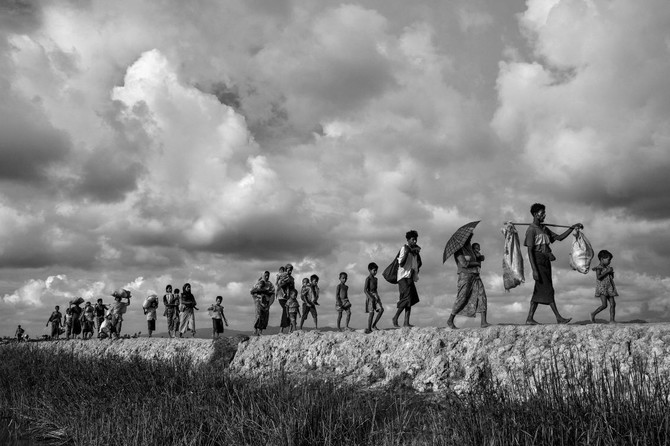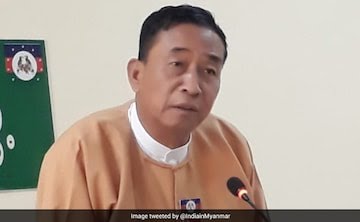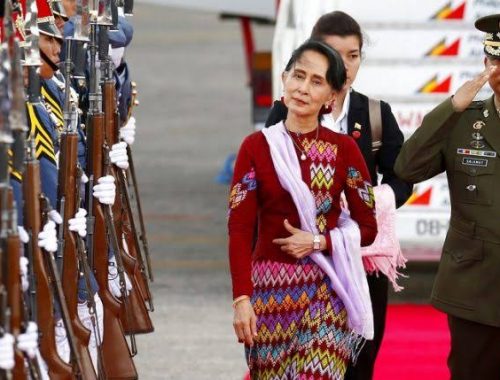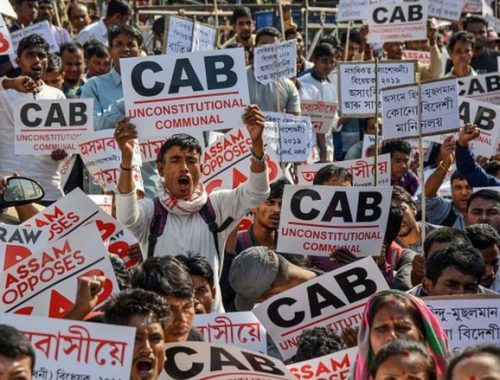by Param-Preet Singh:
In August 2017, the desperate plight of Myanmar’s Rohingya Muslims grabbed headlines when the military’s brutal campaign of murder, rape and other abuses forced more than 740,000 Rohingya to flee to Bangladesh. In 2019, the United Nations-backed Independent International Fact-Finding Mission on Myanmar warned that the 600,000 Rohingya remaining in Myanmar’s Rakhine state faced a greater than ever threat of genocide because of the government’s attempts to “erase their identity and remove them from the country.”
Despite repeated resolutions from the U.N. Human Rights Council and General Assembly condemning these atrocities, Myanmar faced few consequences. That bleak reality changed in November 2019 when Gambia filed an application before the International Court of Justice (ICJ) alleging that Myanmar’s atrocities against the Rohingya in Rakhine state violated various provisions of the Genocide Convention. Myanmar must now answer for its brutal treatment of the Rohingya before a credible international tribunal.
The court has already signaled how serious it is about its scrutiny. In its January 2020 unanimous order on provisional measures, the ICJ found that Myanmar had not presented “concrete measures aimed specifically at recognizing and ensuring the right of the Rohingya to exist as a protected group under the Genocide Convention.” The court directed Myanmar not to commit and to prevent genocide, and to preserve any evidence of allegedly genocidal acts committed against the Rohingya.
Myanmar, as a party to the Genocide Convention, is legally bound to comply with the court’s order, and its de facto leader, Aung San Suu Kyi, has acknowledged the court’s role as a “vital refuge of international justice” in settling this dispute.
But what does compliance with the court’s order look like?
What Myanmar is Doing
Prior to its first report to the ICJ on the implementation of the order, submitted in late May of this year, the Myanmar government issued presidential directives to ensure that officials do not commit genocide, to prohibit the destruction or removal of evidence of abuses, and to denounce and to prevent the proliferation of hate speech.
The impact of these directives on the ground, however, has been nonexistent. The government has a long history of failing to conduct credible investigations into alleged war crimes and rights abuses by its security forces. For example, rather than serving as a stepping stone toward meaningful accountability, Myanmar’s recent court-martial conviction of three military personnel for crimes against ethnic Rohingya victims in actuality, is merely one aspect of ongoing government efforts to evade meaningful accountability, by scapegoating a few soldiers rather than seriously investigating the military leadership who oversaw the atrocity crimes.
In reality, the situation for civilians in Rakhine state has actually worsened over the past year, as the armed conflict between the Arakan Army, an ethnic Rakhine armed group, and Myanmar’s military has increased insecurity across the state and displaced as many as 160,000 civilians. Hundreds of ethnic Rakhine and dozens of Rohingya civilians have been killed in the fighting. Myanmar’s announcement of new military clearance operations raises concerns of further risks to civilians.
Preventing genocide is also not just about preventing further violence. The Rohingya in Rakhine state are subject to “oppressive and systemic restrictions” on freedom of movement and access to food, health care, and humanitarian assistance, all of which may be indicative of the Myanmar government’s intent to destroy the group in whole or in part. And these conditions are only getting worse.
The Rohingya trapped in refugee and displaced persons camps and villages face growing threats from the COVID-19 pandemic. Our research at Human Rights Watch has found that Myanmar authorities are using Covid-19 response measures as yet another pretext to harass and extort Rohingya in central Rakhine detention camps, doubling down on a system in which they are already effectively incarcerating the population.
What Myanmar Should be Doing
There are plenty of concrete measures Myanmar’s government could take to protect the vulnerable Rohingya remaining in Rakhine state and, in doing so, demonstrate actual compliance with the ICJ’s order.
For instance, the Myanmar government continues to severely restrict Rohingyas’ access to health facilities, with life-threatening consequences. Last month the government reported that from September to December 2019, at Sittwe General Hospital – the main health facility in Rakhine state and the only hospital most Rohingya can access – fewer than a thousand patients treated were Rohingya, suggesting that many Rohingya are unable to secure needed hospital care. The government could and should urgently lift the restrictions that prevent Rohingya from accessing equitable health care – such as eliminating a medical referral system, removing financial barriers, and increasing ambulance services.
Further, a slew of discriminatory laws isolate the Rohingya in their own country and legitimize discrimination, including the 1982 Citizenship Law, which effectively prevents Rohingya from obtaining Myanmar citizenship, and leaves many Rohingya, including children, stateless. The government should repeal the discriminatory legal framework that targets the Rohingya, including the 1982 Citizenship Law, and establish a procedure that ensures that Rohingya are able to obtain full citizenship without discrimination.
Government restrictions on humanitarian access in Rakhine state remain pervasive and insidious.
Myanmar authorities have responded to the Arakan Army conflict by imposing new restrictions on aid, movement, media, and the internet since January 2019. Humanitarian access has been restricted in eight of Rakhine state’s 17 townships, leading to shortages of food, medicine, and shelter for the Rohingya, ethnic Rakhine and others living in affected areas, and making it difficult or impossible to deliver lifesaving supplies. The government should lift these blanket restrictions on aid delivery and grant humanitarian groups and U.N. agencies immediate, unrestricted, and sustained access to all conflict-affected civilians, including Rohingya.
These are only a few of the steps Myanmar could take to protect the Rohingya if it was serious about implementing the ICJ’s provisional measures order. But Myanmar’s non-compliance is not necessarily set in stone, especially in the face of persistent diplomatic pressure to change course.
While a final determination by the ICJ is most likely years away, the court’s provisional measures order has already unlocked a vital framework to meaningfully assess what Myanmar is – and isn’t – doing to protect the Rohingya in Rakhine state from genocide.
Ultimately, it’s up to individual governments, both in their bilateral dealings with Myanmar and collectively through the U.N., to raise the political cost of Myanmar’s continuing non-compliance.
While diplomacy – often driven by consensus about what the political market will bear despite the ugliest of facts – is needed to push for enforcement, the ICJ’s judges are not subject to these forces. Instead, they are bound by the law’s application to the facts presented.
Regardless of what enforcement measures are ultimately taken, Gambia’s genocide case against Myanmar means that the rights of the Rohingya and the atrocities they have suffered cannot be easily forgotten in the face of the latest crisis or political discomfort. As the Rohingya poet Ali Mayuu eloquently puts it, “the gate of justice is just opened.” (Editors Note: This article is part of a special Just Security forum on the ongoing Gambia v. Myanmar litigation at the International Court of Justice and ways forward.)




